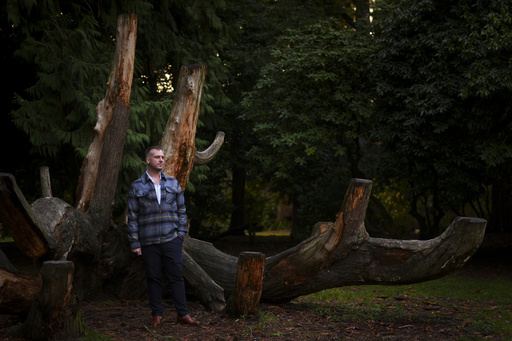DENVER — Last month, the U.S. Center for SafeSport terminated one of its investigators after it was revealed that he had been arrested for alleged theft related to a drug bust during his former tenure as a police officer. Jason Krasley, who was previously with the Allentown Police Department in Pennsylvania and joined the Denver-based SafeSport Center, was tasked with investigating sensitive sexual abuse and harassment allegations.
One of Krasley’s assignments involved looking into a case reported by Sean McDowell, a member of a Seattle rugby club who accused another member of stalking and harassment. McDowell expressed his frustrations with the center, noting it took about eight weeks to receive an investigator for his case—a period during which he received minimal communication. Eventually, McDowell received an email from Daniel Kast, the center’s assistant director of investigations, informing him that Krasley was no longer employed there and that a new investigator would take over.
After investigating the situation further, McDowell discovered that Krasley had been arrested and charged with theft and receiving stolen property for reportedly stealing $5,500 from money seized in a 2019 drug bust. The ongoing criminal case in Pennsylvania has yet to be resolved, leaving McDowell in disbelief. “It seemed so off from what their stated mission is,” he remarked, continuing to process the revelation.
The SafeSport Center was established in 2017 to address cases of sexual misconduct and harassment within the realm of sports connected to the Olympic community, catering to a wide range from elite athletes down to community levels. Currently, the center is staffed by around 77 employees specifically trained to respond to and resolve these matters. With approximately 155 reports coming in each week, the center is faced with a growing demand to address an increasing number of sensitive cases under its jurisdiction.
Amid these systemic challenges, there has been an ongoing struggle to recruit qualified investigators capable of handling delicate inquiries involving both victims and the accused. The center has stated that it seeks out experts from various fields, including law enforcement and education, to ensure thorough and professional investigations. In addressing the issue of Krasley, the center’s CEO, Ju’Riese Colon, expressed her disappointment and highlighted the importance of maintaining a thorough vetting process. She acknowledged that the center conducts comprehensive background checks through an independent third party annually.
Krasley worked as a detective for the Allentown police from 2002 until 2021, and his recent arrest stemmed from incidents following a drug raid where a significant amount of cocaine and cash was seized. Reports indicate that Krasley was among the officers responsible for accounting for the cash, which subsequently led to suspicions about missing funds. Krasley, however, has not responded to inquiries seeking his comment.
The circumstances surrounding Krasley’s arrest have raised questions regarding the cases he managed during his time at the center, though the exact number of his assignments remains unclear. One such case involved Kirsten Hawkes, a fencer who reported a troubling encounter with a former coach. While she found Krasley to be empathetic and willing to discuss her case, she also noted that he seemed overly eager to reach a resolution without fully addressing her allegations of prior abuse. Learning of his arrest made her doubt whether her case had been handled correctly.
“It raises concerns about the seriousness of their vetting process,” Hawkes stated, stressing the importance of thoroughly checking candidates, especially for roles involving sensitive information. The center has announced that it is reviewing Krasley’s cases and has enlisted an external firm to audit his investigations without any initial findings indicating mismanagement.
Since Krasley’s dismissal, McDowell has been reassigned to a new investigator, who he described as responsive so far. However, he remains concerned about the timeline and perceived urgency of the center’s actions regarding his harassment report. McDowell believes that the way his case has been treated illustrates systemic issues within the organization, highlighting the ongoing challenges he faces due to alleged retaliation from his rugby team after voicing his concerns.
“The SafeSport Center seems to say all the right things, yet their actions speak otherwise,” McDowell commented, pointing out the dissonance between the center’s public image and its actual performance.
In light of these incidents and ongoing investigations, the Center for SafeSport continues to grapple with improving its processes and the overall trust placed in it by the sports community while evaluating the handling of sensitive cases within its jurisdiction.



